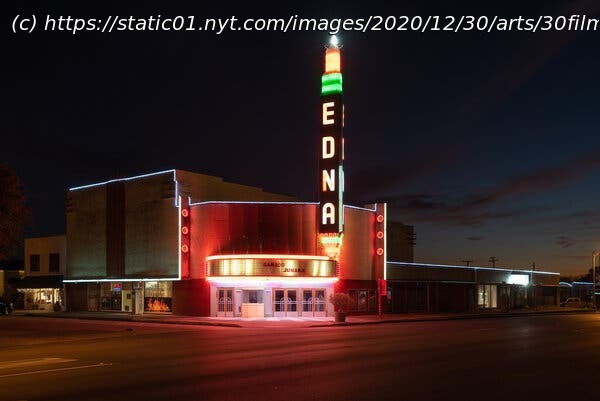We streamed, we watched, we worried. We also wondered what the catastrophe called 2020 will mean for movies.
The end of December usually brings a flurry of big releases and a blizzard of Oscar speculation. But with the Academy Awards postponed and many theaters shuttered or half-empty, this movie year closes with a shiver of existential anxiety in Hollywood and beyond. In 2020, Netflix expanded its reach, and two of the surviving legacy studios — Warner Bros. and Disney — beefed up their streaming platforms, the latest sign of a shift in business strategy that is likely to outlast the pandemic. As 2021 approaches, our critics examine the film industry in crisis, and wonder what the future might hold. A.O. SCOTT Is this the end of moviegoing as we have known it? You and I are not in the business of making predictions, and since we are students of film history we know that the death of movies is old, fake news. Premature obituaries have been filed every decade or so, at least since the arrival of sound. The art form has been changing constantly, and so have the ways we consume it: “as we have known it” includes movie palaces, drive-ins, grindhouses and multiplexes; and also network television Movies of the Week, VHS, Blu-ray, and now streaming. Still, the situation right now feels different, perhaps more cataclysmic. I don’t doubt that people will want to go back to movie theaters after the pandemic, as they will to restaurants, nightclubs, concert halls and bowling alleys. But a shift in the industry that was already underway before Covid-19 seems to have accelerated. We’ve sometimes used “the studios” as a slightly anachronistic synonym for Hollywood. Are we entering the age of “the platforms”? MANOHLA DARGIS Well, good morning, sunshine! I’m hesitant to offer any grand divinations, but we know that the movies or, rather, the American film industry is in a state of perpetual crisis. In the past, the industry has always found a way of circumventing the latest calamity, often by taking advantage of (or even absorbing) perceived threats, like with television. The threat posed by streaming is on another order of magnitude: i.e., the internet changed everything, including how people watch entertainment. The rest is history, and another couple of gazillion bucks for Jeff Bezos. We’ve talked a lot about how the pandemic has accelerated this latest shift, even if the larger change occurred with the advent of home video. Once people could choose what to watch when they wanted, the old days were over (again). Depending on who you talk to, the movies themselves — or at least how the latest generation understood what “the movies” meant — were over, too. Me, well, I am old enough to remember when Steven Soderbergh made movies that opened in theaters. They were events, and exciting. I couldn’t wait to see them. Now, he drops a movie on HBO Max and I think, “Huh, I guess I should watch that one of these days.” SCOTT I’m glad you mention Soderbergh, who has been a thoughtful observer of the industry even as he’s worked in just about every corner of it. Over three decades he’s made small and medium-size indie movies, big studio franchises, premium-cable series, self-distributed passion projects, and now straight-to-streaming features. When some of his peers, notably Christopher Nolan, were raging against Warner Bros.’s decision to release its 2021 movies simultaneously on HBO Max and in theaters, Soderbergh was more sanguine, seeing a short-term economic fix rather than a tectonic shift in the business. “The theatrical business is not going away,” he told The Daily Beast.






